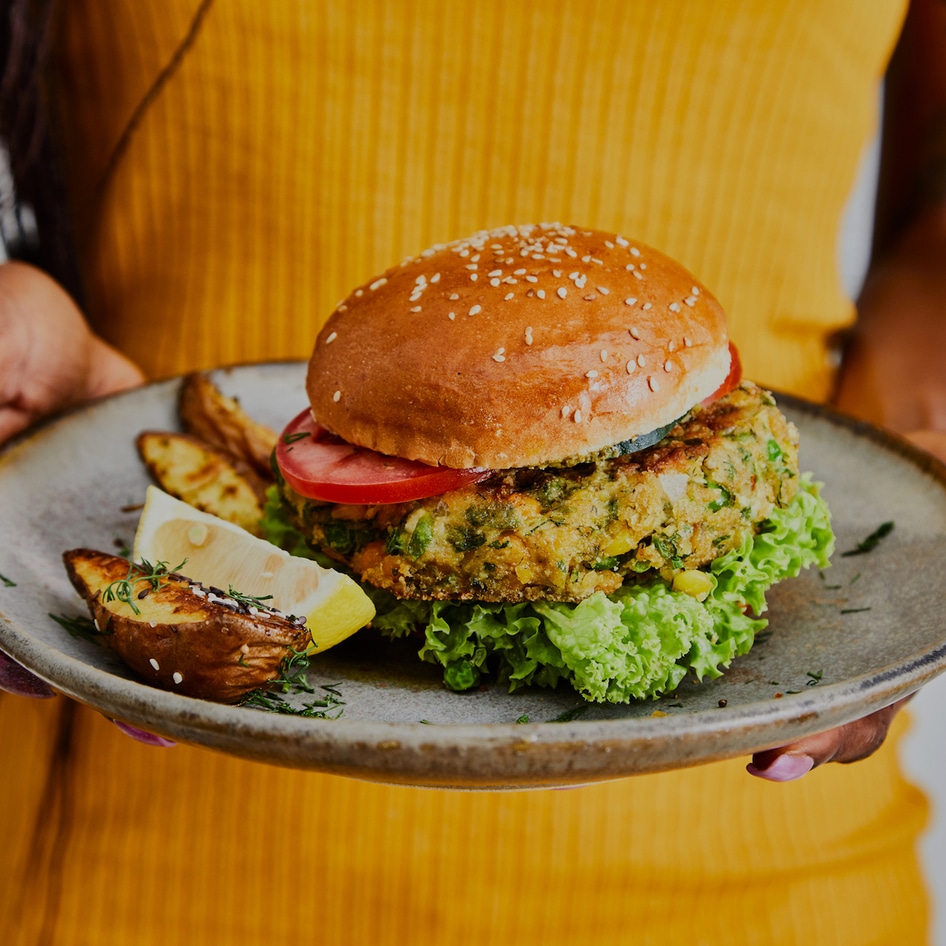It was Simon Amstell’s 2017 movie Carnage that first turned Daisy Ridley vegan. According to the popular film and TV database IMDB, the Star Wars actor was “horrified” by the mockumentary, which is set in a vegan future and follows people as they look back on the carnivorous past. But it’s not just ethics that drive Ridley’s food choices—health is an important factor, too.
Ridley has three chronic conditions, endometriosis, polycystic ovary syndrome (PCOS), and Graves’ disease, and she claims her diet, which is now gluten-free as well as plant-based, is important for managing her health.
Recently, she discussed her lifestyle choices with Women’s Health. She explained that she takes medication, exercises, rests, participates in cryotherapy (also known as cold therapy), and has regular massages and acupuncture. She also follows a “mindful diet.” She told the publication: “I’ve always been health conscious, and now I’m trying to be more wellbeing conscious.”
Daisy Ridley’s plant-based lifestyle
According to IMDB, Carnage inspired Ridley “to educate herself about the meat and dairy industry.” It added: “After cutting both, she eventually settled on eating fish as a compromise.” However, recently, the star told Variety in an interview that she does consider herself to be vegan.
 Daisy Ridley
Daisy Ridley
Ridley didn’t discuss what type of foods she eats with Women’s Health, but she did mention that she’s not “super strict” with her diet. She noted that she has cut down on gluten, which makes her feel better. She speculated that this could have something to do with inflammation.
Endometriosis, PCOS, and Graves’ disease are all associated with inflammation (albeit in different ways), and for some people with a sensitivity or intolerance, eating foods that contain gluten may worsen this. However, it’s important to note that, for most people, gluten—which is found in wheat, barley, and rye—is not inflammatory.
Research also suggests that a vegan diet, particularly one filled with plant-based, whole foods, can reduce inflammation. This is because many fruits, vegetables, nuts, seeds, and legumes contain anti-inflammatory compounds, like polyphenols, flavonoids, and carotenoids.
Can a plant-based diet help manage chronic diseases?
Multiple studies have suggested that following a plant-based, whole-food diet can reduce the risk of chronic diseases, including type 2 diabetes, heart disease, and cancer, as well as the three conditions that Ridley suffers from.
Endometriosis, for example, is a chronic inflammatory disease that causes tissue that is similar to the uterus lining to grow in the wrong places (it can grow everywhere from the ovaries to the lungs). According to The Endometriosis Foundation, cutting down on inflammatory foods, like red meat and processed foods, and increasing intake of plant-based whole foods, like fruits and vegetables, may help to manage the condition.
Dietary advice is similar for managing PCOS, which is characterized by an imbalance of hormones and can lead to irregular periods, weight gain, and acne. Research suggests that people with PCOS are more likely to suffer from chronic inflammation, which is why, again, experts recommend plant-based whole foods.
“Foods like ultra-processed foods, processed meats, refined carbs, added sugar, saturated and trans fats, and excessive alcohol are all known to contribute to chronic inflammation. Of course, having any of these foods occasionally is likely fine. Your overall diet pattern is the most important factor when it comes to lower inflammation,” Alyssa Pacheco, RD, LDN previously told VegNews.
Per Healthline, a mostly plant-based Mediterranean diet is also often recommended for people with Graves’ disease, like Ridley. Graves’ disease is an autoimmune condition that impacts the thyroid gland. “While the foods you eat can’t cure Graves’ disease, they can provide antioxidants and nutrients that may help support your overall health and prevent complications,” the publication reports.
Of course, medication and other lifestyle interventions are also important for managing chronic conditions.
 Daisy Ridley
Daisy Ridley
BECOME A VEGNEWS VIP: Get exclusive product deals, freebies, and perks galore!
Speak up if something feels wrong, says Daisy Ridley
Ridley stated in her interview that it’s important to speak up if you suspect you might be suffering from any chronic health problem. Conditions like PCOS and endometriosis, which impact women and people who were assigned female at birth, for example, are often underdiagnosed.
“We all read the stats about women being undiagnosed or underdiagnosed and sort of coming to terms with saying ‘I really, actually don’t feel good’ and not going, ‘I’m fine, I’m fine, I’m fine, I’m fine.’ It’s just normalized to not feel good,” she said. The actress added: “Even if you can deal with it, you shouldn’t have to. If there’s a problem, you shouldn’t have to just [suffer through it].”
For more plant-based stories like this, read:
JUMP TO ... Latest News | Recipes | Guides | Health | Subscribe









